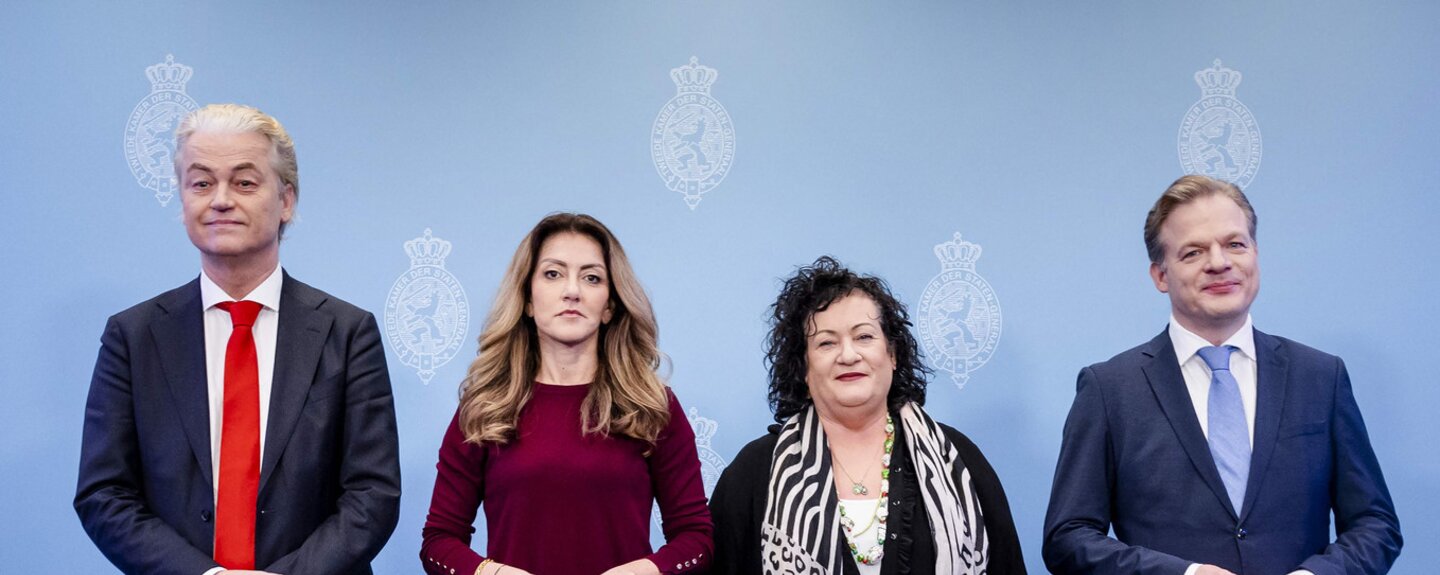New Dutch coalition unveils major shift in political course
Under the title "hope, courage, and pride," the four Dutch forming parties unveiled their outline plans for a coalition agreement last night. The agreement, spanning a hefty 26 pages, signals a shift in political direction: after years of centrist coalitions, the forming parties now opt for a distinctly right-wing course. What does this mean for the transition to a sustainable and healthy world?
According to some parties, it takes a lot of courage to be proud of the coalition agreement now on the table, while others see the plans of the four leading parties as a positive step forward. One thing is certain: opinions are divided. And the protracted formation process of the four leading parties – the PVV, VVD, BBB, and NSC – has only exacerbated polarization in politics and society. Since November of last year, under the leadership of various formators, the parties have been in discussions. The publication of the coalition agreement is at least a step forward after an endlessly long formation process.
Agriculture & Food
Pride in farmers and fishermen is evident. This pride in the agricultural and fisheries sector is reflected in a renewed focus on individual entrepreneurship, strengthened protectionism, and less stringent protection of natural areas. This is also evident from the recent name change of the ministry, now known as the Ministry of Agriculture, Fisheries, Food Security, and Nature. According to the agreement, the government aims to maximize efforts to adapt European regulations. The agreement also emphasizes that the Netherlands should no longer pursue a more ambitious nature policy than other European countries. The coalition is determined to halt forced reduction of livestock and expropriation of agricultural land. A noticeable shift is the clear move from an approach focused on nature-inclusive agriculture to a policy aiming to balance agriculture and nature.
Climate
The climate fund remains intact to everyone's surprise. The coalition also intends to adhere to existing climate policy goals. "Only if we fail to meet the goals will alternative policies be considered," argue the four leading parties. However, the announced increased CO2 levy will be reversed, and the phase-out of fossil fuel subsidies for energy provision will only take place within European framework. The new coalition has decided to no longer adhere to the previously estimated construction of two but rather four large new nuclear power plants. This decision illustrates the parties' intention to significantly emphasize energy independence and promote their own sustainable energy production. Additionally, the mandatory requirement for heat pumps, an initiative proposed by the previous cabinet, is now reversed. Subsidies for electric cars will be discontinued as of 2025.
Healthcare
The four political parties aim to strengthen cooperation between various healthcare entities, including primary care, general practitioners, district nursing, and informal caregivers. Although prevention is high on the agenda, in practice, budgets for preventive measures, such as the 'Promising Start' program, are significantly reduced. Nevertheless, the coalition advocates putting prevention at the forefront, including the importance of sports and exercise, to promote health, reduce health inequalities, and manage the demand for healthcare. Additionally, there will be a new comprehensive approach to vaccination policy, with special attention to protecting children.










